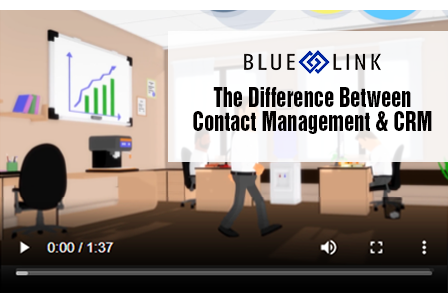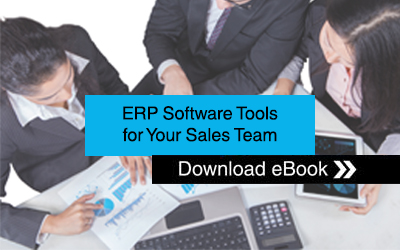Customer Relationship Management (CRM) tools can be very helpful to a company’s sales and marketing team in driving sales growth. Tools that enable a team to track leads and prospects through a comprehensive sales cycle can help ensure they don’t allow any leads to ‘slip through the cracks’. Having a centralized location of customer information such as meeting dates, archived emails, and other notes allows your sales team to maintain a strong relationship with potential clients, hence the name CRM. With a multitude of options in the market, it’s important not to forget about your ERP software, which often has its own CRM functionality included. Here are few reasons why it’s wise to look inward to your ERP before exploring other CRM options:
Avoid Integration Issues and Create a Better User Experience:
When a company decides to move to a more sophisticated software system such as ERP, often the reason they are doing so is to consolidate multiple systems into a central location. By choosing an ERP system with CRM capabilities you eliminate the need for a secondary standalone system that is used primarily to manage your sales processes. Consequently, you avoid having to coordinate with multiple vendors to ensure the two systems will integrate properly. In addition, you also eliminate the need to train employees on two separate, and often distinct, systems. For many companies, moving to a new software system can be an adjustment for its employees, and so reducing the amount of systems and functionality an employee needs to learn can avoid additional stress.
Enhanced View of Customer Needs:
One of the major advantages of CRM software is being able to have a comprehensive view of specific customers and maintaining a single access point to all pertinent information. Having all information related to a customer in one database (such as current order history, shipping addresses, email communications, and main contact details), allows you to create a centralized hub that can be accessed by different employees from your organization. For example, if your accounting department needs to know a billing address of a customer, or perhaps the sales and marketing team wants to call and check in on how things are going, all the information needed is easily accessible. CRM tools are often only associated with sales and marketing, but the information that is maintained is also useful to other departments in your organization. Keeping the information in one system, not only makes employees' jobs easier but ensures you are promptly meeting customer needs.
Enhanced Sales Efforts:
It’s important not to neglect one of the main reasons a company would require CRM functionality and that is of course, to drive sales. Having a system that enables your sales and marketing team to perform tasks such as logging customer details, recording notes about prospects as well as uploading email conversations for reference is incredibly beneficial when trying to close sales. Once again, it is crucial to keep prospect information accessible across your entire sales and marketing team. For example, a situation that often arises is when a sales person is away on a vacation. By utilizing CRM tools and maintaining all previous conversation history and notes in one place, it will allow another member of your sales team to continue discussions without missing a beat.
There are plenty of CRM options available in the marketplace that can help organize a company’s sales process. But for those companies already in the market for an ERP system, it doesn’t hurt to explore what CRM functionality is available to them. Hopefully it is sufficient and you can ultimately avoid the added stress of a second standalone system.












